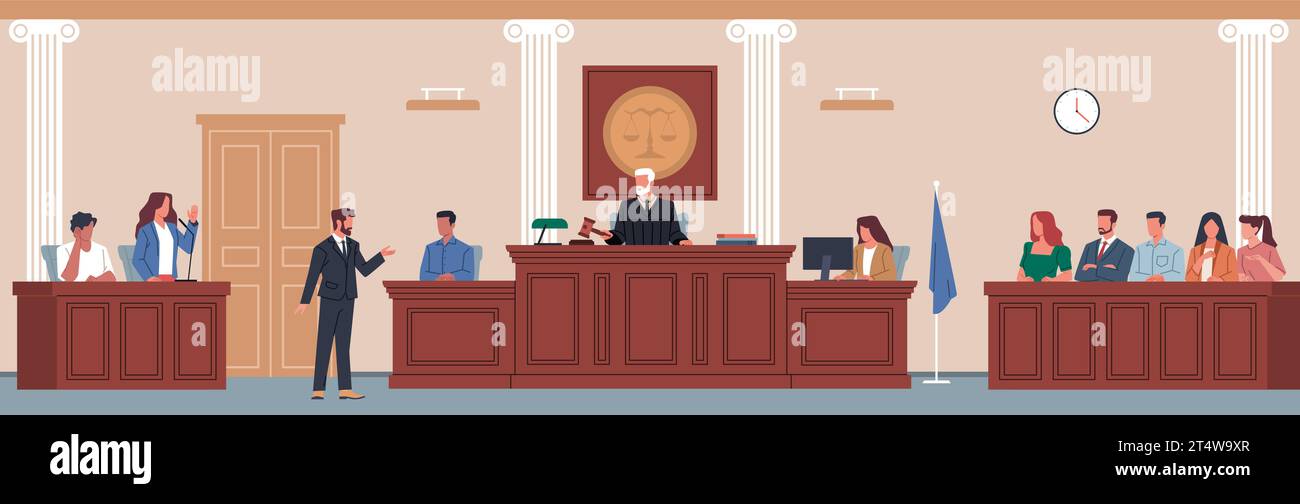Tips for Creating Professional Trial Presentations That Win Cases.
Tips for Creating Professional Trial Presentations That Win Cases.
Blog Article
Why Trial Presentations Are Important for Encouraging a Jury
Trial discussions play a pivotal function in the lawful procedure, working as a vital device for persuading jurors. By efficiently streamlining intricate lawful concepts and integrating aesthetic help, lawyers can develop an engaging narrative that resonates on both intellectual and emotional levels. This calculated strategy not only enhances jurors' understanding but likewise cultivates a deeper connection to the situation available. As we discover the numerous components that comprise a reliable test discussion, it becomes obvious that the art of persuasion prolongs far beyond plain arguments. What aspects truly elevate these presentations to their necessary status?
Significance of Visual Aids
Aesthetic help play an important role in trial discussions, functioning as powerful tools to boost jurors' understanding of complicated info. They can transform detailed lawful ideas and factual information into easily absorbable styles, thus improving jurors' retention and understanding. In a court setting, where interest spans might subside, visual help such as charts, charts, and timelines can successfully capture and keep rate of interest.
Moreover, aesthetic aids aid in showing key factors, making abstract ideas extra concrete. An infographic can succinctly summarize a series of occasions or relationships, permitting jurors to imagine the proof presented. This aesthetic representation can connect voids in comprehending that might occur from spoken explanations alone.
Furthermore, properly designed aesthetic aids provide reliability to the situation. They show the attorney's readiness and professionalism and trust, mirroring a thoughtful method to campaigning for. By providing a clear visual context, attorneys can better argue their placement and encourage jurors to line up with their perspective.
Involving Narration Techniques
A compelling story is necessary for effectively engaging a court throughout test presentations. Storytelling methods can change intricate legal disagreements right into relatable and remarkable experiences for jurors. By creating a clear and coherent narrative arc, attorneys can direct jurors with the realities, stressing essential points that support their situation.
Making use of personalities, problem, and resolution within the story allows jurors to identify with the individuals entailed, developing a feeling of compassion and understanding. Trial Presentations. This human element can be particularly powerful in establishing the context of the case, making the information much more digestible
Incorporating vibrant descriptions and relevant anecdotes can even more enhance the narrative, suggesting that resonates with jurors on a much deeper degree. Lawyers must concentrate on providing the truths in a manner that highlights the stakes involved, fostering a feeling of necessity and value.
Furthermore, pacing plays a vital function in storytelling; varying the pace can keep jurors' interest and emphasize defining moments in case. On the whole, involving storytelling techniques function as a crucial tool for attorneys looking for to convince juries and affect their decision-making procedure.
Psychological Connection With Jurors

To attain this link, attorneys can utilize vivid narration, engaging visuals, and authentic testimony that highlight the human facet of the instance. Concentrating on the real-life ramifications of the trial can aid jurors see past the legal jargon and value the emotional stakes entailed. Such approaches motivate jurors to feel sorry for the events entailed, making them more probable to take into consideration the psychological weight of the evidence offered.
Additionally, building trust via sincerity and credibility can likewise enhance this psychological bond (Trial Presentations). When jurors feel an individual connection to the case, they are a lot more inclined to involve deeply with the here and now arguments, eventually making their deliberations a lot more he has a good point informed and impactful. Hence, promoting a psychological connection is not simply useful; it is important for reliable persuasion in the courtroom
Simplifying Facility Information

Making use of visual help, such as graphes and representations, can considerably boost understanding by supplying a concrete depiction of abstract ideas. This approach enables jurors to picture partnerships and influences, facilitating much better comprehension of the situation's nuances. Breaking down information into smaller, digestible sections assists maintain jurors' emphasis and prevents cognitive overload.
Using uncomplicated language is equally important. Legal lingo or overly technological terms can push away jurors and cover the core message. By making use learn the facts here now of typical language, lawyers create a bridge to get in touch with jurors, making certain that the compound of the argument is both relatable and remarkable.
Eventually, streamlining complex info not just aids jurors in comprehending the instance however additionally promotes a feeling of self-confidence in their ability to make a notified choice, which is important for accomplishing a desirable outcome.

Enhancing Retention and Remember
While jurors might realize complex info throughout trial presentations, improving their retention and recall is similarly essential for ensuring that essential disagreements reverberate long after the proceedings. Effective trial presentations use different methods created to reinforce the jurors' memory of vital realities and debates.
Aesthetic help, such as graphes, graphs, and videos, can substantially boost retention by engaging multiple senses, thereby creating stronger cognitive connections. Paired with clear, concise stories, these devices aid strengthen the bottom lines, making them a lot more official website unforgettable. Additionally, repetition of important information throughout the presentation guarantees that crucial disagreements are not just understood but additionally instilled in the jurors' minds.
Another reliable strategy is making use of storytelling, which promotes psychological engagement and aids in recall. By framing realities within a compelling narrative, lawyers can produce a long lasting impression that reverberates beyond the courtroom.
Inevitably, boosting retention and recall is necessary for persuading jurors, as it encourages them to bring the weight of the case's debate into considerations. A well-crafted discussion not only educates but additionally makes sure that jurors remember the necessary components needed to get to a just choice.
Conclusion
In conclusion, trial discussions play a crucial role in convincing courts by incorporating aesthetic aids, engaging storytelling, and emotional connections. Efficient discussions boost jurors' retention and recall of crucial disagreements, eventually affecting their considerations.
Report this page